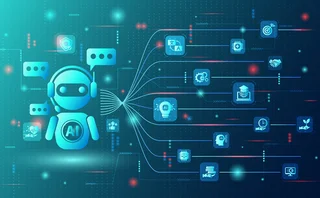The Problem with Programming: "There's No Good Code"

So with that in mind, on Wednesdays I shoot pool in a league, usually at this dive bar in Greenpoint, Brooklyn. Two nights ago, a friend of mine, Peter Welch, was talking to one of my teammates about a blog post he recently wrote and how it's taken off. Being the eavesdropper that I am, I congratulated him and asked how many clicks he's gotten, expecting maybe a few thousand.
No, it was actually a six-figure number. Over 100,000 shares on Facebook. Over 10,000 retweets. It was republished by Gizmodo. Once I picked my jaw up off the floor, I smiled and congratulated Pete on his burst into blogging stardom. And I was genuinely happy for him; he's good people. But man...the jealousy. And it probably didn't help that I had lost my pool match earlier that evening after twice accidently kicking the 8-ball into the wrong pocket. Now I'm just being bitter.
Why do I tell you this tale? Well, Peter's blog post is about something the subscribers of this publication know plenty about: Programming...and why coding can become a twisted nightmare of insanity.
As an example, from the post, titled "Programming Sucks":
Every programmer starts out writing some perfect little snowflake like this. Then they're told on Friday they need to have six hundred snowflakes written by Tuesday, so they cheat a bit here and there and maybe copy a few snowflakes and try to stick them together or they have to ask a coworker to work on one who melts it and then all the programmers' snowflakes get dumped together in some inscrutable shape and somebody leans a Picasso on it because nobody wants to see the cat urine soaking into all your broken snowflakes melting in the light of day. Next week, everybody shovels more snow on it to keep the Picasso from falling over.
There's a theory that you can cure this by following standards, except there are more "standards" than there are things computers can actually do, and these standards are all variously improved and maligned by the personal preferences of the people coding them, so no collection of code has ever made it into the real world without doing a few dozen identical things a few dozen not even remotely similar ways. The first few weeks of any job are just figuring out how a program works even if you're familiar with every single language, framework, and standard that's involved, because standards are unicorns.
Peter is an engaging, smart writer, so I encourage you to read his full story. It's a rant but it's highly entertaining and if you know anything about coding it will strike a chord with you.
As for me, I'm going to go to the White Horse Tavern down here in the Financial District and have a glass of Wild Turkey and tell myself over and over that I'm a capable writer.
Only users who have a paid subscription or are part of a corporate subscription are able to print or copy content.
To access these options, along with all other subscription benefits, please contact info@waterstechnology.com or view our subscription options here: http://subscriptions.waterstechnology.com/subscribe
You are currently unable to print this content. Please contact info@waterstechnology.com to find out more.
You are currently unable to copy this content. Please contact info@waterstechnology.com to find out more.
Copyright Infopro Digital Limited. All rights reserved.
As outlined in our terms and conditions, https://www.infopro-digital.com/terms-and-conditions/subscriptions/ (point 2.4), printing is limited to a single copy.
If you would like to purchase additional rights please email info@waterstechnology.com
Copyright Infopro Digital Limited. All rights reserved.
You may share this content using our article tools. As outlined in our terms and conditions, https://www.infopro-digital.com/terms-and-conditions/subscriptions/ (clause 2.4), an Authorised User may only make one copy of the materials for their own personal use. You must also comply with the restrictions in clause 2.5.
If you would like to purchase additional rights please email info@waterstechnology.com
More on Emerging Technologies
DeepSeek success spurs banks to consider do-it-yourself AI
Chinese LLM resets price tag for in-house systems—and could also nudge banks towards open-source models.
Standard Chartered goes from spectator to player in digital asset game
The bank’s digital assets custody offering is underpinned by an open API and modular infrastructure, allowing it to potentially add a secondary back-end system provider.
Saugata Saha pilots S&P’s way through data interoperability, AI
Saha, who was named president of S&P Global Market Intelligence last year, details how the company is looking at enterprise data and the success of its early investments in AI.
Data partnerships, outsourced trading, developer wins, Studio Ghibli, and more
The Waters Cooler: CME and Google Cloud reach second base, Visible Alpha settles in at S&P, and another overnight trading venue is approved in this week’s news round-up.
Are we really moving on from GenAI already?
Waters Wrap: Agentic AI is becoming an increasingly hot topic, but Anthony says that shouldn’t come at the expense of generative AI.
Cloud infrastructure’s role in agentic AI
The financial services industry’s AI-driven future will require even greater reliance on cloud. A well-architected framework is key, write IBM’s Gautam Kumar and Raja Basu.
Waters Wavelength Ep. 310: SigTech’s Bin Ren
This week, SigTech’s CEO Bin Ren joins Eliot to discuss GenAI’s progress since ChatGPT’s emergence in 2022, agentic AI, and challenges with regulating AI.
Microsoft exec: ‘Generative AI is completely passé. This is the year of agentic AI’
Microsoft’s Symon Garfield said that AI advancements are prompting financial services firms to change their approach to integrating AI-powered solutions.








